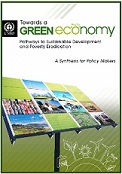Antwi Akom will talk about “From Urgency to Action: Ecojustice, Tech Innovation, and Community Revitalization” on Mon., Nov. 2, at 7pm in the Young Auditorium. It’s the first Fall 2015 Contemporary Issues Lecture and the Campus Diversity Forum Keynote Lecture!
Akom is Executive Director and Co-Founder of I-SEEED (Institute for Sustainable Economic, Educational and Environmental Design) and Associate Professor of Africana Studies, College of Ethnic Studies, at San Francisco State University, as well as affiliated faculty with Educational Leadership. His biography at SFSU.edu says that
His research focuses on the links between race, space, place, and waste in cities and schools; the role of the green economy in facilitating pathways out of poverty for vulnerable populations and green innovation in creating smart, sustainable, and shareable cities for all; and the role of local knowledge, participatory technology, and community engaged design in making our cities more resilient, democratic, and just so that everyday people have a voice in transforming the structures that impact their daily lives.
Dr. Akom’s research and practice work to build partnerships between local residents, schools and universities, environmental and educational experts, community based organizations, labor unions, green businesses, and city planners to generate policy, planning, and community engaged design solutions that promote practices of green urbanism, environmental health, and economic mobility.
 Andersen Library has related resources for learning more! Search article databases for articles such as “New urbanism and the city: Potential applications and implications for distressed inner‐city neighborhoods” (Housing Policy Debate, 2000, vol.11:no.4, pp.761-801), “Public participation and New Urbanism: A conflicting agenda?” (Planning Theory and Practice, 2007, vol.8:no.4, pp.449-472), “Equitable planning through territories of exception: The contours of Medellin’s urban development projects” (International Development Planning Review, 2015, vol.37:no.4, pp.373-397), and “Urban regeneration and democratization of information access: CitiStat experience in Baltimore” (Journal of Environmental Management, 2009, vol.90:no.6, pp.2012-2019). You also can read Akom’s article “Turning adversity into opportunity: Ghettos and slums and hotbeds of green innovation” (USGBC+, March-April 2015). See also the United Nations Environment Pogramme document Towards a green economy: Pathways to sustainable development and poverty eradication: A synthesis for policy makers (online).
Andersen Library has related resources for learning more! Search article databases for articles such as “New urbanism and the city: Potential applications and implications for distressed inner‐city neighborhoods” (Housing Policy Debate, 2000, vol.11:no.4, pp.761-801), “Public participation and New Urbanism: A conflicting agenda?” (Planning Theory and Practice, 2007, vol.8:no.4, pp.449-472), “Equitable planning through territories of exception: The contours of Medellin’s urban development projects” (International Development Planning Review, 2015, vol.37:no.4, pp.373-397), and “Urban regeneration and democratization of information access: CitiStat experience in Baltimore” (Journal of Environmental Management, 2009, vol.90:no.6, pp.2012-2019). You also can read Akom’s article “Turning adversity into opportunity: Ghettos and slums and hotbeds of green innovation” (USGBC+, March-April 2015). See also the United Nations Environment Pogramme document Towards a green economy: Pathways to sustainable development and poverty eradication: A synthesis for policy makers (online).
Please ask a librarian (choose email or chat, phone 262.472.1032 or visit the Reference Desk) for assistance with finding additional materials.
